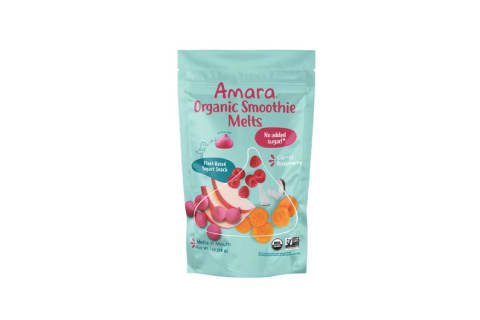
September 23, 2021 — 10:08 AM
Easing anxiety takes more than a quick fix. Sure, in-the-moment tricks deserve honorable mention (take this intentional breathing practice, for example), but it’s also important to recruit helpful habits for the long haul. And this is where nutrition comes into play: “Food is a big piece [of anxiety], and unfortunately food and nutrients don’t get talked about enough,” says clinical psychologist and board-certified nutritionist Nicole Beurkens, Ph.D., CNS, on the mindbodygreen podcast. You eat every day, multiple times a day—so why not indulge in foods that can support a balanced mood?
As for the best foods for anxiety, experts have their fan favorites. Beurkens? “One of my big hero foods is pumpkin seeds,” she declares.
Why pumpkin seeds are great for brain health.
Pumpkin seeds are chock-full of healthy minerals (just check out their glowing USDA nutrition profile): “We’ve got zinc, we’ve got magnesium, we’ve got good amounts of iron,” notes Beurkens—not to mention they also boast a fair amount of omega-3s. “They’re a real powerhouse in terms of brain function,” she adds.
Let’s take a moment to discuss some of those brain-healthy nutrients and minerals in detail:
- Magnesium: According to research, a lack of magnesium can kick-start the sympathetic nervous system (and when this sympathetic nervous system is on overdrive, it can lead to increased anxiety).
- Omega-3s: “Omega-3 fatty acids for sure have the most research literature and evidence behind them for supporting brains in kids and adults,” Beurkens says. In fact, one study shows that omega-3 fats can decrease stress, and another demonstrates that diets rich in omega-3 fatty acids can help promote a healthy emotional balance and positive mood.
- Zinc: Research has linked an imbalance of zinc to copper with anxiety (specifically, people with anxiety had significantly lower levels of zinc and higher levels of copper).
- Iron: Low iron levels have been associated with anxiety and depression, according to a study in the European Journal of Clinical Nutrition.
How to incorporate more pumpkin seeds into your meals.
Not only can pumpkin seeds feed your brain with healthy nutrients, but Beurkens also calls them an “easy target.” Meaning: You can add them to a variety of meals and snacks, both sweet and savory.
Functional Nutrition Coaching
Access cutting edge nutrition information from top experts

Of course, you can always munch on a handful of roasted pumpkin seeds (coat them in your favorite spices for a zing of flavor, Beurkens suggests), or you can fold them into your baking mixtures (see: this omega bread); sprinkle them on your salads (like this citrus-kale number); blend them into your smoothies; or add them to granolas and cereals. The list goes on and on—pumpkin seeds’ possibilities are truly endless.
According to Beurkens, pumpkin seeds are one of the best foods to add to your grocery list. They boast significant data for brain health, and they’re super versatile—not to mention, roasting pumpkin seeds is a classic fall activity.
https://www.mindbodygreen.com/articles/how-pumpkin-seeds-can-help-ease-anxiety








